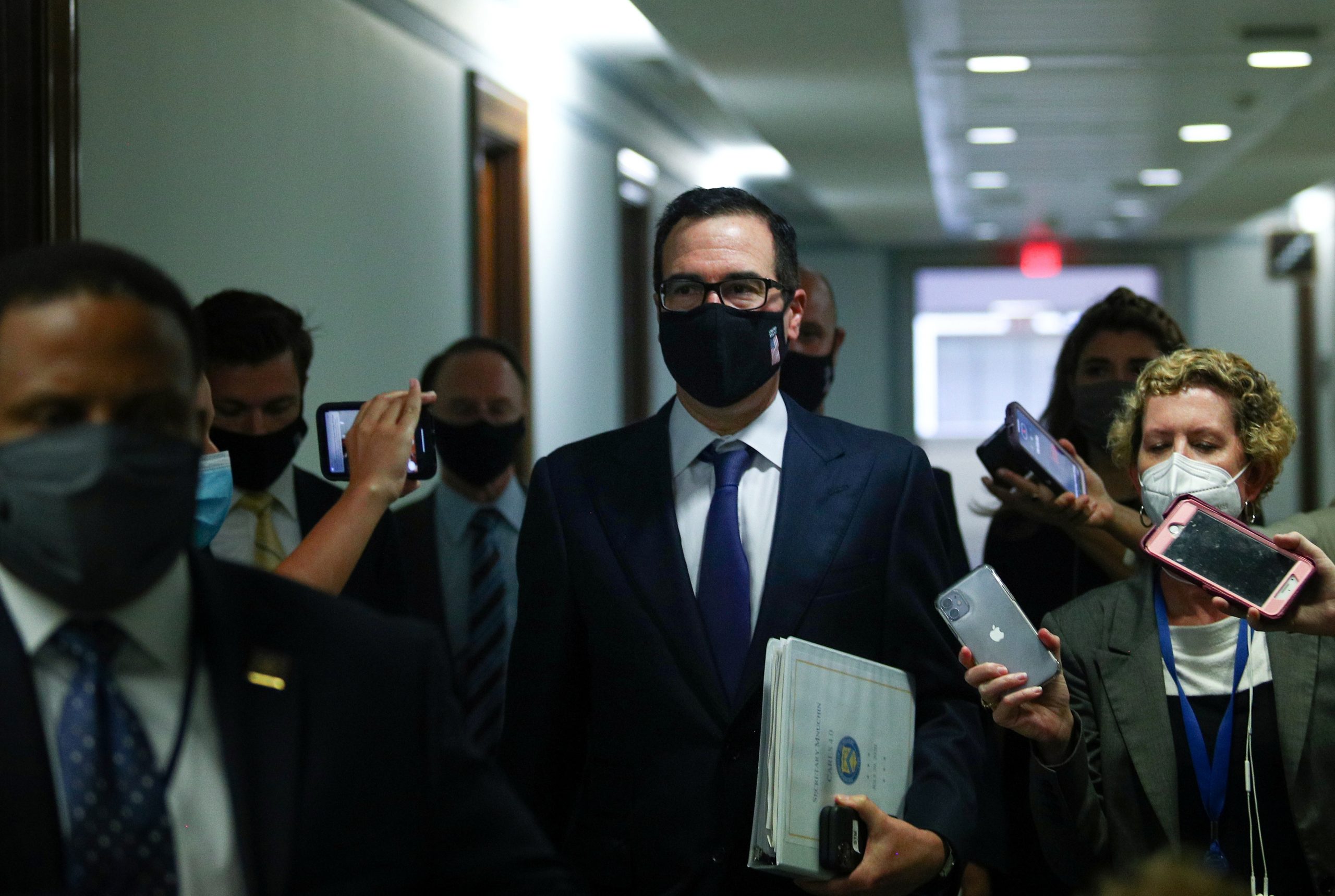U.S. Republicans and Democrats remained far apart on Tuesday on how much to spend on the next round of coronavirus relief as they discussed proposals to extend unemployment insurance for Americans thrown out of work and provide more money for schools.
After separate meetings with White House and Treasury officials, Republican and Democratic lawmakers said they expected the eventual legislation to include more funding for coronavirus testing, despite earlier resistance to the idea from President Donald Trump’s administration.
But there was debate over whether to accept Trump’s demands for a payroll tax cut, which even some Senate Republicans questioned. Democrats said Republicans and the White House had not united on a proposal. The payroll tax funds federal retirement programs such as Social Security.
House Speaker Nancy Pelosi said the $1 trillion Republicans say they are considering would not be sufficient to do what is needed for the U.S. economy and Americans’ health. The Democratic-run House of Representatives passed a $3 trillion relief bill two months ago that the Republican-majority Senate has ignored.
“We want to see this (Republican) bill, not just have a conversation,” Pelosi told reporters after a meeting with Treasury Secretary Steven Mnuchin, White House chief of staff Mark Meadows and Senate Democratic leader Chuck Schumer.
“We’re glad they came to see us, we’re glad they outlined some very broad concepts, but they’re not close to getting ready to negotiate,” Schumer said.
Mnuchin said, however, the day’s meetings were productive and he hoped for agreement by the end of next week.
“That’s an important time frame, because we want to get something done before the unemployment insurance expires” on July 31, he said.
The United States has recorded more than 3.8 million coronavirus cases and over 141,000 deaths. Tens of millions have been thrown out of work.
Mnuchin and Meadows spent much of the day discussing White House priorities for the legislation with lawmakers, first with Senate Republicans, then with Pelosi and Schumer.
Senate Majority Leader Mitch McConnell said Republicans would soon unveil a new coronavirus bill that is expected to have a $1 trillion price tag.
He said it would include $105 billion for schools; assistance for small businesses; direct payments to individuals and families; help for businesses to meet the cost of protecting employees and customers; money for vaccines, diagnostics and treatments; and liability protection for businesses, healthcare facilities, churches, charities and government agencies.
Democrats are proposing $175 billion to help elementary and secondary schools cope with the pandemic and have said they are determined to fight for provisions in a $3 trillion bill that passed the House in May and includes aid to state and local governments, extended unemployment insurance for displaced workers and protections for workers.
There are also disagreements within the Republican ranks over what new legislation should contain.
‘TIME TICKING AWAY’
“I’m going to introduce a bill in the next few days that is a starting place, that enjoys fairly significant support among Republican senators – probably not everyone,” McConnell told a news conference.
The White House had threatened to upstage the negotiations by pressing for the elimination of billions of dollars for testing. But in an apparent reversal, Mnuchin said the administration wanted “to make sure there’s plenty of money for testing. And that’s a big priority.”
Trump has also called for a payroll tax cut, a provision Meadows described on Tuesday as “a very high priority.”
There is little enthusiasm for such a move on Capitol Hill.
“There are some differences of opinion on the question of the payroll tax cut and whether that’s the best way to go,” McConnell said.
Trump, who is seeking re-election, wants the payroll tax cut ahead of the November election and sees it as a major stimulus for the pandemic-stricken U.S. economy, according to the White House. Democrats have said such a move is unnecessary and could threaten Social Security benefits.
(Reporting by David Morgan, Susan Cornwell, Richard Cowan, David Lawder, Lisa Lambert and David Brunnstrom; Editing by Scott Malone, Dan Grebler and Peter Cooney)

























 Continue with Google
Continue with Google